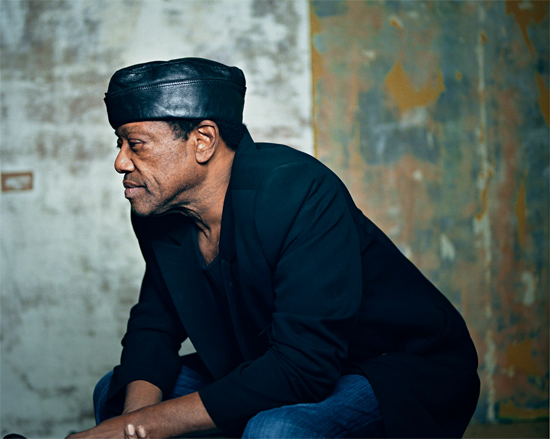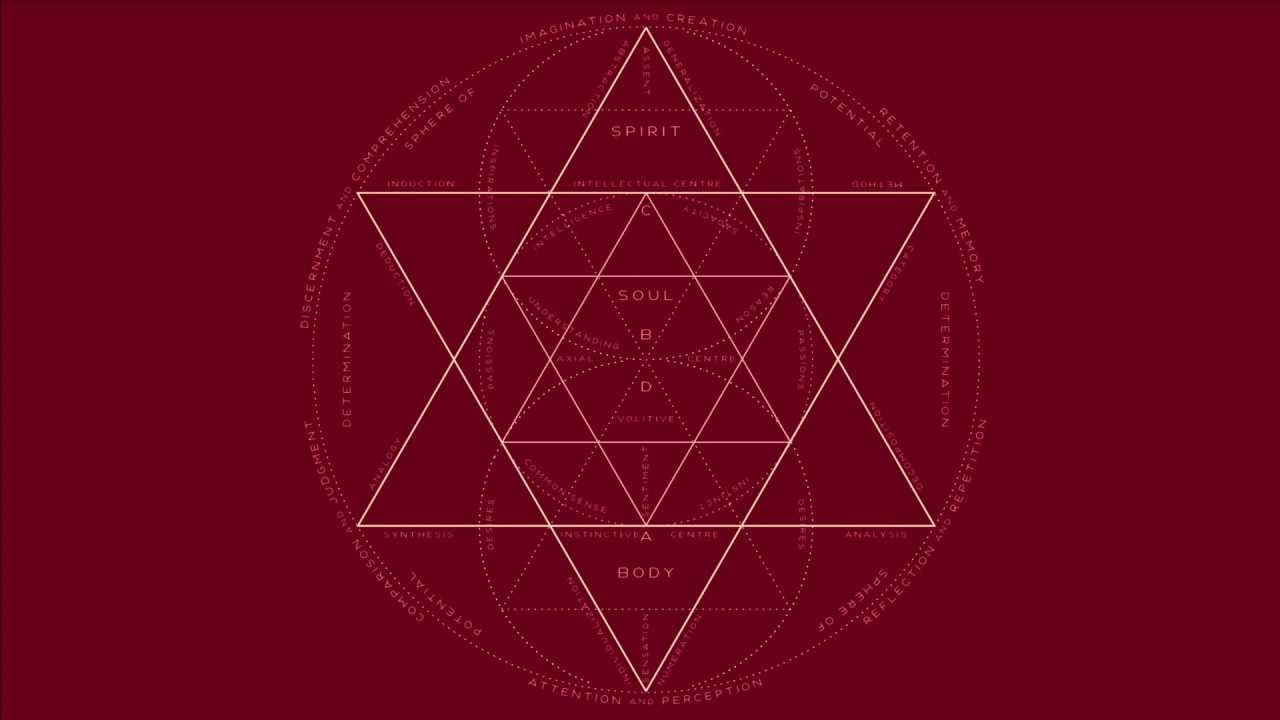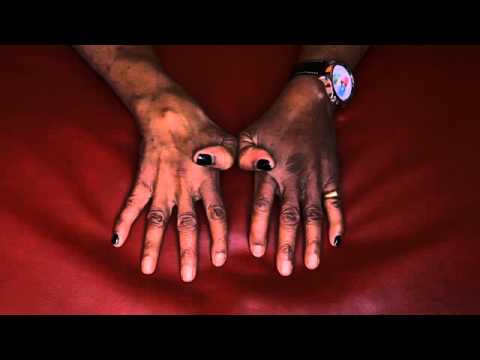There’s little preamble when you have a conversation with Bobby
Womack. Mere moments after I’ve dialled the number for the recovery
centre where he’s convalescing, the 68 year old soulman has quickly
shifted from brief greetings to an unflinching catalogue of his recent
health woes, his take on the current pop scene, and how stars should
always make time for their fans.
“Aw, man,” he croaks, voice all flinty like charcoal. “I tell you
what… I have really been sicker than I’ve ever been in my life…”
It’s no exaggeration, and maybe that explains the breathless pace at
which he talks. Womack has, over the last six months, faced down a
setlist of illnesses that should have spelt the end. He’s survived,
however – days previously he’d received the ‘all-clear’ on the cancer
– and perhaps this rude re-acquaintance with mortality has reminded
Womack that time’s-a-wasting, that he needs to start sharing as many
of his wisdoms as he can, while he can. There’s also no doubt that
these recent, troubling times have only sharpened those wisdoms, made
them more vivid.
He’s on the line to talk about The Bravest Man In The Universe, his
latest album, written and recorded with the assistance of long-time
friend and songwriter Harold Payne, XL Records honcho Richard Russell,
and Blur bloke Damon Albarn. Albarn worked with Womack on ‘Stylo’ and
‘Cloud Of Unknowing’ from Gorillaz’ 2010 LP Plastic Beach. Russell,
meanwhile, has signed Womack to XL, after a number of years in the
wilderness, echoing how he signed Gil Scott-Heron for his thirteenth
and final album, 2010’s I’m New Here, which Russell also produced.
Gil appears, albeit briefly, on The Bravest Man… – a 23 second
‘introlude’ of inspired babble that ends on a deadpan “God was broke”
– and he and Womack shared some things in common, not least years of
drug abuse. But Womack, unlike Gil, was able to turn the corner on his
drug problems, and has earned a reprieve from the reaper. Perhaps that
explains the note of hope, of redemption, that pervades The Bravest Man…, but make no mistake, this is clearly the work of a man who has
gazed into the void.
Those wisdoms he’s learned arrive in the lyric sheet, swiftly and with
conviction. Like on the opening title track, where Womack asserts that
“The bravest man in the universe / Is the one who has forgiven first”.
That’s not the kind of conclusion a young man comes to, at least not
the way Womack sings it; he doesn’t just mean it, he knows it.
Womack’s been around the block, a number of times. This isn’t his
first brush with death; he’s been intimately acquainted with it from a
young age, since his close friend and mentor Sam Cooke – the man who
convinced Womack and his brothers in The Valentinos to switch from
gospel to soul – was shot dead when Bobby was only twenty years old.
Since then, he’s bid farewell to friends and collaborators, though
more often they were stolen away before he could say goodbye. “I think
of Sam Cooke,” he begins, “Of Wilson Pickett, of Marvin Gaye, of Ray
Charles, of Janis Joplin, of Jimi Hendrix…”
He was a sideman to some of them, to others just a friend. In the
early 1970s, his own solo career caught fire, and you should certainly
make yourself familiar with Bobby’s albums for United Artists,
especially 1971’s Communication, 1972’s Understanding, and his
soundtrack for Blaxploitation thriller Across 110th Street. As early
as Communication, he was prefacing a sublime take on The Carpenters’
‘Close To You’ with a lengthy exposition on the vagaries of the music
industry, in particular the label presidents and vice-presidents
standing between Bobby and where he wanted to be. Bad habits and label
hassles got the better of him as the seventies closed, but a pair of
albums in the 1980s, ‘81’s The Poet and ’84 sequel The Poet II,
revitalised his career, topping Billboard’s Black Music charts, as
they called them then. His last album, however, was a Christmas album
released in 2000; since then, he’s been mostly silent. But The Bravest Man… is one hell of a return: a haunting, profound, uplifting set, of
troubled soul, of aching blues, of the most feverishly rousing gospel. Call it a comeback, because Womack’s already working on the follow-up.
So here follows our Q&A, though there weren’t many Qs, and an
abundance of A. In truth, I could hardly get a word in, and whenever I
did, for the most part Bobby just took my questions as a detour back
to the points and subjects upon which he’d already decided to expound
before I rang. This was a sermon, I realised later, while typing it
up, and I was just lucky enough to have been on the receiving end.
How have you been?
Bobby Womack: Aw, man, I tell you what… I have really been sicker than I’ve ever
been in my life. I did not want to discuss it with anybody, and the
record company was saying, ‘Just talk about the album’. But you know
what? When I walk onstage I feel like I know each one of those people
in the audience personally. I don’t try and do a show, I just do what
comes naturally, the feeling of soul music. And so I just felt that I
should discuss things that people – maybe some of ‘em don’t wanna hear
it, but I feel that if people care about you, it’s okay to tell them,
‘I’m down and out right now, I’m not doing well.’ You can’t be no
honester than that to your family.
Tell me how the new album came about…
BW: If you had told me a few years ago, ‘You’re gonna meet a group called
Gorillaz, and in a sense they gonna bring you back – these guys
idolise what you do, and have done for a long time, they felt that you
were ahead of your time…’ On the Gorillaz tour, Damon kept saying,
‘Man, we gotta record something together, I see magic that’s fresh,
that hasn’t been touched, and it’ll come out of you.’ I told him,
‘Well, for twenty years I haven’t been around the music business, I
haven’t wanted to write.’
This album was put together like we had worked on it for years, but
we had only worked on it from the time we went in the studio. We just
went in and said, ‘Let’s do a song.’ And the songs kept on coming.
We’d go in the studio each morning at 11am, and at 6pm every night,
everyone wanted to go home and be with their family. Damon was very
strict about that, and I respected that, because that was how I wanted
to be, and I was persuaded in the past that you gotta hang out all
night…
You used to have a lot of late nights?
BW: Yeah, I did. [laughs] Walking away from the drug scene was tough,
only because people that I thought were my friends would no longer
come through town and say, ‘Bobby, come by.’ They would sneak into
town, and sneak out. I said, ‘Damn, man. I must be doing something
right, because everybody that’s still doing wrong feels guilty!’ They
were hiding from me, or taking bets – like, ‘I guarantee if I see him,
I’ll get him high again.’ And I thought, is that so important to
them?
Why did you stop wanting to write music?
BW: It’s not respected in America, not real soul music. You can still
hear Aretha Franklin sing, and you are blessed, but no one cares.
She’s ‘old school’, and they think they can’t relate, they just wanna
hear the ‘new school’. But how do you think you get a new school
without the old school? Everything comes from somewhere… People like
Aretha, like Sam Cooke, like Jimi Hendrix, like Ray Charles, they were
ice-breakers, man. They carried music ahead, like, five or ten miles.
And those were heavy miles. You listen to those artists, there isn’t
anyone else like that. You knew it. And when I tell stories, I tell
the truth. It’s easier to tell the truth than a lie. It’s harder to
tell a lie. And the key thing to soul music is that it’s real. You can
hear a person in their voice, their crying and their hurt, the things
they’re going through. People always wanna be reached through their
soul, through the music. But the music industry, they’re not
interested. They don’t understand that.
Sam Cooke was a key influence upon you…
BW: Sam Cooke was very devastating. You hear a song of his, that’s the
only way to sing it. He taught me a lot about… He was a gentleman,
that was the first thing. People loved him, like, they’d think, ‘If I
wanna be like somebody, I wanna be like him.’ I loved the way he
treated people. He would always say, ‘Hey, Bobby, if it wasn’t for
those people out there, these shorts I have on, the car that I drive,
the house that I live in – they paid for it.’ He always had time for
them. And as I came up, I’d see superstars – I ain’t naming names –
who, if somebody spoke to them and said ‘I love your music’, wouldn’t
even speak to ‘em. And I’d say, ‘He just hurt a person that named his
kid after him. How could he be so cold?’ That’s not the guy he
projects in his music.
I learned that from Sam. He would stay up and talk to fans all night,
and he’d say, ‘This is what I do. This is what I love to do. We the
most blessed people in the world, Bobby. We would pay someone to let
us do what we do for a living. They pay us to do our favourite thing,
Bobby, which is perform. They come to see us so they can get away.’
They feel like the bills are still gonna be there tomorrow, they’ll
have the same pressures they feel today – it’ll probably be even
worse. So they’ll come on by and catch Sam Cooke, or Bobby Womack, or
Harold Payne, and enjoy themselves. And it does ease the pain. That’s
an important position to be in, an important thing to be able to do.
Did your recent illnesses influence The Bravest Man In The Universe at all?
BW: We’ve come a long way – if you’d told me six months ago that this was
gonna happen to me, I would’ve thought you were crazy. I’ve had
prostate cancer, colon cancer, walking pneumonia – twice… I had a lung
completely collapse on me, I had to be on a machine, I didn’t come
around, I was out of it for ten days… If I talk about that, sing about
it, maybe if other people in a similar bad place hear it, they’ll
think they can deal with it too. When you have that kind of power, you
have to speak up, so people don’t feel like they’re alone. Because I
know when I was going through this illness, I said, ‘Damn, why is
everything happening to me?’ I felt alone. When I came around, my
ex-wife said, ‘Do you know you were dead for ten days? The only thing
that was keeping you alive was a machine.’ I just felt, for the first
time, you know, I’ve said it, and meant it, but never lived it.
It’s like what Sam Cooke says on the intro to ‘Dayglo Reflection’, on
the new album… We found tape of him doing an interview with Dick
Clark, and he said, ‘As a singer grows older, his perception goes a
little deeper, because he lives life and he understand what he’s
trying to say a little more.’ Like, when you first sing something,
that’s your first look at it, but as you grow older, you understand
what you’re trying to say a little more, you can explain it better.
And that song went a long way with me, because at the same time I was
losing my mom – she died Christmas Eve. Damon said, ‘I don’t think you
should come in the studio today’, because he knew about it. He said I
should take two or three days off. But I said, ‘You know what? My mom
would be highly against that.’ Sam’s no longer here, I might not be
here for much longer… But the people will never forget – it will
always be on tape, and you can play it back and feel something’s going
on that’s very special. Those kinds of things I like to share with my
audience, with my people. That’s what I’m doing.
We did it in the studio with Damon, Richard, Harold. It was a family,
for real – there wasn’t no egos flying around. It was easy, because
when you reach people, there’s no ego.
When you were starting out, Sam Cooke told you to switch from gospel
music to secular pop, like he had. There’s a lot of gospel on this
album, however.
BW: ‘Deep River’ is a song that I used to hear in the church when I was a
little kid. Somebody would be singing that song, from the audience,
and the whole room would sing it with them, and you’d think they’d
rehearsed it. It was so spiritual, I could never forget it. So when we
were recording, I started just singing the song, and they asked,
‘What’s that?’ And I said, ‘That’s like a roll call. You ain’t never
been to church if you don’t know that song. Everybody knew it.’ So
they said, keep playing it, play it the whole way through, it’s going
on the album.
There was another song, ‘Jubilee’, and I never heard people talk about
it, but when I was a kid, churches said you couldn’t use no drums, or
no guitar, or no piano – ‘This is church!’ But they had their own way
of licking that. So the singers didn’t use those instruments, but they
would sing ‘Jubilee’, and ‘Jubilee’ was a tune that was so fast that
everybody would just jump in, and there was rhythm and everything, and
I never heard nothing like that. I’d ask, ‘Nobody plays ‘Jubilee’ no
more, what happened to it?’ And it was because the instruments came
in, and it became passé. So when I started singing it, they thought it
was amazing, and it was great to enlighten people on something they
never knew. And it’s a lot of stuff that you hear, it’s been done
eighty years ago. Look at Cab Calloway, he was Michael Jackson, years
earlier. Everything comes from somewhere.
Back in your sideman days, you played guitar and sang during the
sessions for Sly Stone’s There’s A Riot Goin’ On… What was that like?
BW: There was a riot goin’ on, alright – it was at Sly’s house! I had
hung with Sam Cooke. Sly was more funkier… Way more funkier.
Everything he was doing was right on the ground, including his
briefcase, if you know what I mean. That’s just the way he was. He
taught me to give myself more freedom. ‘Say what you feel, if it’s
real, people will get it.’ He said, ‘Your voice is a lot huskier than
Sam’s, and you come at it from a different direction. I’m not putting
it down, but if I had to pick between the two, I would pick you,
you’re more soulful.’
He’s soulful, alright. But I understood what he
said long after. When we’d come in he would be doing a song, and I
would normally just pick up the guitar and start playing with him, and
it would always be something he wanted to hear. We never planned
anything, he didn’t even know I was coming. I just walked in and saw a
microphone there and a guitar, and started playing with him. I learned
from him that the truth is always the truth, and a lie is always a
lie. It’s easy to remember the truth, and hard to remember the lie.
You know what I’m saying?
You’ve enjoyed the experience of making this album enough to do
another one, right?
BW: Yeah. Harold’s written a new song, called ‘Left-Handed Upside Down’. It
talks about me being a guitar player – that’s how I learned to play,
left-handed, upside-down. It’s gonna be on the next album. But it’s a
heavy song, and what was heavy about it was, he had to listen to me a
long time and know me well – I couldn’t have wrote it no better. I
said, ‘Harold, I got to have this song, man, it’s about me!’ And I
meant that – ‘You never gonna be able to sing this song, no way’
[laughs]. So we worked out something. That’s the way it has to be as a
writer – there’s some things you don’t wanna talk about; there’s a lot
of things people don’t wanna talk about. But when you talk about them,
they’ll go and get the record, because they can relate.
And that’s how it’s been with this album. All of the stuff I learned,
that got me to the age of 68 today… To be able to put it on this last
album, it’s more than words could ever express. I’m giving all of
myself on this album: where my head’s been, where I’m going, what I’m
trying to relate to. And it speaks for itself. If it didn’t sell no
records at all, it sold my heart.




